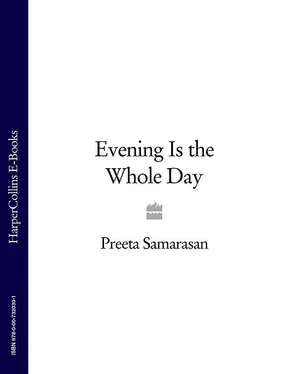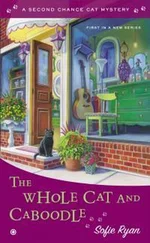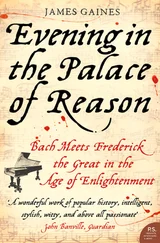In no other house , thinks Suresh. There aren’t any other houses, at least on Kingfisher Lane, staffed with scrawny servant girls dressed in oversized hundred-percent cotton courthouse shirts. If they’d saved Appa’s ties they could’ve had her wear those as well. And a bowler hat and gloves. Then they could’ve had her answer the door like a butler.
“Hmph,” Amma snorts into her teacup, “here I was trying to help her out, giving her clothes and telling her she could save her money for more useful things.”
Financial counseling and free shirts: a special Big House–only package deal. It had filled Amma with purpose and consequence, and had indeed impelled Chellam to try to save her money for More Useful Things. That is, until she realized that her father would turn up month after month to collect her wages on payday at the Big House, and that she was therefore saving her money for his daily toddies and samsus. For the back-street arrack that gave him the vision and vigor to beat his wife and children at home, and the cloudy rice wine the toddy shop owner made in a bathroom basin. Still, if you asked Chellam’s father (or the toddy shop owner), these were all Useful Things.
“In the end look what she’s done with my charity and my advice,” Amma says, wrapping up her tale with a jerk of the head towards the staircase. “She’s taken them and thrown both one shot in my face. Just wait, one by one the others also will be doing the same thing. Why not? After seeing her example they’ll also become just as bold. Vellamma can murder me, Letchumi can murder Appa, Mat Din can burn the house down, and Lourdesmary can stand and clap. Happily ever after.”
Aasha and Suresh silently note that they themselves are absent from this macabre prophecy. If Amma’s words can be taken at face value, the long fingers of fate will clutch at Suresh and Aasha but miss; for this they should probably feel lucky.
But they don’t.
Suresh is grateful only that Chellam doesn’t understand much English and is slightly hard of hearing (from all the clips her father’s fists, heavy with toddy and samsu, visited upon her ears in childhood). He notes that for some reason she’s left her suitcase leaning against the banister and hurried back upstairs. He isn’t going to point this out to Amma.
Aasha rocks back and forth in her chair so that her stretched-out toes, on every forward rocking, brush against Suresh’s knees under the table. It makes her feel better that he has knees, even if Uma has disappeared forever and Amma has been strangely transformed. He has knees. And again he has knees. Each time he has knees.
Behind Amma something stirs the curtains. Not wind, it’s not that sort of movement—not a gentle billowing, not a filling and unfilling with air, but a sudden jerk, as if someone’s hiding behind them, and sure enough, when Aasha checks she sees that her grandmother’s transparent ghost feet are peeking out from under the curtains, the broad toes she knows so well curling upward on the cool marble. So. Paati is back again, two weeks after her death, and for the very first time since her rattan chair was burned in the backyard. She’s not so easily scared off, is she? While everyone else is otherwise preoccupied, Paati’s hand darts out from behind the curtains, helps itself to a stray Marie biscuit crumb on the table beside Suresh’s plate, and slips back to its hiding place. And how would the others explain that? wonders Aasha in high dudgeon. What would they say, the faithless, doubting blind, who have stubbornly resisted the idea of Paati’s continued presence, and rolled their eyes at Aasha whenever she has tried to convey to them the needs and fears of Mr. McDougall’s daughter, the Big House’s original ghost and the one who has stuck by Aasha through all her losses and longings? No such thing as ghosts, they’ve scoffed (all except for Chellam, but other shortcomings mar her record). Now Aasha laps up this moment thirstily, thinks a flurry of I-told-you-so’s to herself.
Standing across from each other on either side of the gate, Appa and Chellam’s father are reflected in the glass panel of the open front door. Insider and outsider, bigshot lawyer and full-of-snot laborer, toothful and toothless. Chellam’s father’s dirty white singlet is spattered with rain; Appa holds his umbrella perfectly erect above his impeccably slicked-and-styled hair.
“ Tsk ,” Amma says, leaning forward to peer at the glass panel, “your father’s tea will be ice cold by the time he comes in. That man is a pain in the neck, I tell you. Normal people will know, isn’t it, okay, my daughter has caused so much trouble, better I shut up and go away quietly? But not him. No bloody shame.” She takes a biscuit from the biscuit plate. “Of course,” she says, and here she shifts her gaze from the glass panel back to the children, looking from one to the other, raising her eyebrows to impart to them the full extent of her inside knowledge, “if you want to talk about shameless men —”
Suresh pulls the biscuit plate towards himself, loudly grating its bottom against the table. “Only Marie biscuits?” he says plaintively. “No more chocolate wafers?”
Amma pauses with her own biscuit halfway to her mouth. She smiles knowingly, leans her head back, exhales, but Suresh, oh brave soldier sister-savior Suresh, does not yield. He holds her gaze, and wordlessly they do battle. For five terrible seconds she sweeps her searchlight eyes over Suresh’s face.
“No,” says Amma finally, “no more chocolate wafers.” Her eyes are still restless. “I’ll have to send Mat Din to the shop.”
“And Nutella,” says Suresh quickly, seizing the advantage. “Marie biscuits are much nicer with Nutella.”
“We’ll have to make a list,” says Amma. “Nutella also finished.”
Aasha lets go of the edge of her chair and slips her hands under her bottom on the seat. Under the chair she swings her legs. They will make a list. Tomorrow or next week Amma will give it to Mat Din the driver along with ten ringgit for petrol. He will take the list to a provision shop in town and come back with a carful of groceries: chocolate wafers, Nutella, rice, mustard seeds, star anise for mutton curry, tinned corn and peas to go with chicken chops. Lourdesmary the cook will put everything away, grumbling about the papaya seeds masquerading among the peppercorns and the staleness of the star anise. And life will go on as it did before Chellam ever arrived, or even better, except there’ll be new ghosts in the house: the ghost of dead Paati, growing younger and older and younger again, wrinkles melting into dimples and dimples into hollows, now a toddler, now a bride, now an old lady with a back as curved as a coconut shell; the ghost of Uma Past, suspended in time and forever eighteen years old; and far more terrible than the others, though Aasha doesn’t know it yet, will be the ghost of Chellam Future, her eyes wild as she screams to them from her funeral pyre, the ends of her hair already aflame, whole bitter planets orbiting at the back of her gaping mouth.
The two voices at the gate drone on and on. The wheedling dances sorrowfully around the weary voice, now grabbing at it, now stroking it, now tying it lovingly in knots as it falls lower and lower, so low they have to strain to hear it under the gentle fingerwork of raindrops on the metal awning, the whir of the ceiling fan, and the buzzing of a fly that has just entered the dining room. In the glass panel of the front door Amma sees Chellam’s father shake his head and wring his wrists like a woman. Then he wipes his cheeks with the heels of his hands, one after the other. He whimpers and moans, and his tremulous voice breaks and bubbles with drink and phlegm. Appa watches wordlessly. From the way he holds his shoulders under his umbrella Suresh can tell that he’s waiting for Chellam’s father to ask him for something. At best, more tea or a slice of plain bread. At worst, fifty ringgit. Or twenty. Or even two—just enough, he liked to say (as a glorious, conscience-pricking coup before he was given the fifty ringgit he knew he’d get every time), for a handful of amaranth leaves from his neighbor’s tree to go with his children’s lunchtime rice. But this time Chellam’s father doesn’t ask for any of these things; he grovels on behalf of his daughter, who hasn’t the shame to do it herself. Useless girl, saar, he says. I should’ve drowned her when she was born. Appa’s shoulders remain stiffly squared two inches below his ears.
Читать дальше












